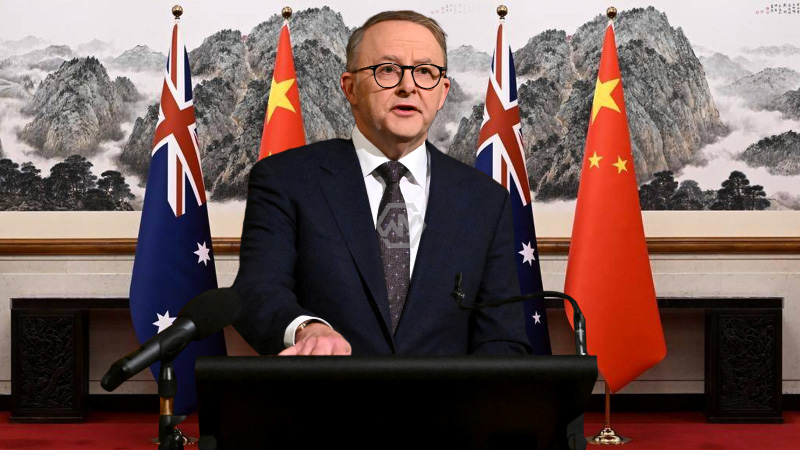- PM Albanese begins a six-day China visit to rebuild trade relations and enhance economic cooperation.
- Meetings include top Chinese leaders and Australian business representatives.
- Taiwan, regional security, and trade diversification remain key underlying themes.
Australian Prime Minister Anthony Albanese has embarked on a six-day diplomatic mission to China, marking a significant step in the thawing of bilateral ties.
While trade remains central, Albanese’s visit unfolds under the shadow of strategic caution. The prime minister reaffirmed Australia’s support for the status quo in Taiwan, emphasizing regional peace and stability.
Diplomacy in Motion: Albanese Seeks Trade Stability in China Visit
The visit signals a diplomatic reset after years of frostiness triggered by Canberra’s earlier calls for a COVID-19 origin inquiry and security disagreements. Albanese’s administration has since worked to normalize relations by engaging in quiet diplomacy and mutual economic interest, avoiding overt confrontation while restoring trust.
A highlight of the trip is the CEO roundtable in Beijing, where Australian business leaders are expected to explore new opportunities in energy, agriculture, tourism, and technology sectors. The inclusion of such a large business cohort underscores Australia’s intention to shift from rhetoric to tangible commercial outcomes.
However, the backdrop remains geopolitically complex. China is anticipated to observe the ongoing Talisman Sabre joint military exercises, a reminder that security flashpoints continue to loom. Albanese’s message of balance—economic engagement without compromising national security—is aimed at navigating these sensitivities.
Public messaging from Chinese state media has also been notably positive, framing the visit as a renewal of “mutual respect and shared prosperity.” This signals Beijing’s openness to recalibrated ties, possibly spurred by both nations’ post-pandemic economic imperatives.
Albanese’s China visit stands as a calculated effort to blend economic pragmatism with diplomatic nuance, shaping a refreshed yet cautious bilateral narrative.
“Trade is a communication of cultures.” — Jack Ma
Albanese’s approach highlights how commerce can bridge political divides while preserving core values.



